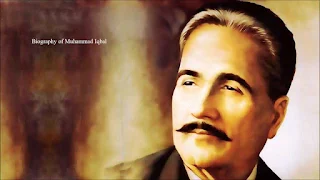Biography of Muhammad Iqbal:
Muhammad Iqbal was a preeminent Muslim poet, thinker, and statesman of India. He was born on November 9, 1877, in Sialkot, Punjab, British India (present-day Punjab, Pakistan) and died on April 21, 1938, in Lahore, Punjab, British India (present-day Punjab, Pakistan). He was educated at Lahore, Cambridge, and Munich. His eloquent writings in Urdu, Persian, and English were aimed at reconstructing Islamic thought in the modern age and galvanizing into action the dormant Muslim communities of India and other lands. His poetry in the Urdu language is considered among the greatest of the twentieth century.
Iqbal’s works are known for their philosophical depth and poetic beauty. His poetry in the Urdu language is considered among the greatest of the twentieth century. He is also considered the greatest Urdu poet of the twentieth century. Iqbal’s vision of a cultural and political ideal for the Muslims of British-ruled India was to animate the impulse for Pakistan.
Iqbal’s most famous works include “Bang-e-Dara”, “Tarana-e-Milli”, “The Secrets of the Self”, “The Secrets of Selflessness”, “Message from the East”, “Persian Psalms”, “Javed Nama”, and “Sare Jahan se Accha”.
 |
Biography of Muhammad Iqbal
|
Brief biography of Muhammad Iqbal:
Muhammad Iqbal, also known as Allama Iqbal, was a prominent philosopher, poet, and politician in British India who played a crucial role in inspiring the Pakistan Movement.
Here's a brief biography of Muhammad Iqbal:
Early Life of Muhammad Iqbal:
Muhammad Iqbal was born on November 9, 1877, in Sialkot, British India (now in Pakistan).
He belonged to a family of Kashmiri Brahmins who had converted to Islam.
Education:
Iqbal received his early education in Sialkot and later attended Government College in Lahore.
He pursued higher studies in the United Kingdom, earning degrees in philosophy from Cambridge and Munich universities.
Literary Career:
Iqbal gained recognition as a poet, philosopher, and writer in both Urdu and Persian.
His poetry, deeply rooted in Islamic thought, focused on themes of spirituality, self-realization, and the revitalization of the Muslim world.
Philosophical Contributions of Iqbal:
Iqbal's philosophical works, including "Asrar-e-Khudi" (Secrets of the Self) and "Bang-e-Dra" (The Call of the Marching Bell), emphasized individuality, self-awareness, and the importance of action.
He advocated for the development of a modern Muslim identity, encouraging Muslims to strive for intellectual and moral awakening.
Political Involvement:
Iqbal actively participated in the political sphere and became a prominent advocate for the rights and interests of Muslims in British India.
He played a key role in the All India Muslim League and proposed the idea of an independent Muslim state, which later led to the creation of Pakistan.
Lahore Resolution:
Iqbal's vision for a separate Muslim state gained momentum with the Lahore Resolution, which was presented at the All India Muslim League session in 1940. The resolution laid the foundation for the creation of Pakistan.
Death of Muhammad Iqbal:
Muhammad Iqbal passed away on April 21, 1938, in Lahore, British India.
Legacy:
Allama Iqbal is widely regarded as one of the most important figures in Urdu literature and is often referred to as Mufakkir-e-Pakistan (The Thinker of Pakistan).
His poetry, including works like "Lab Pe Aati Hai Dua Ban Ke Tamanna Meri" and "Tarana-e-Milli," continues to be celebrated.
Pakistan observes Iqbal Day on November 9th each year to commemorate his contributions.
Allama Iqbal's ideas and poetry continue to inspire generations, and his vision for an independent Muslim state laid the groundwork for the creation of Pakistan in 1947.